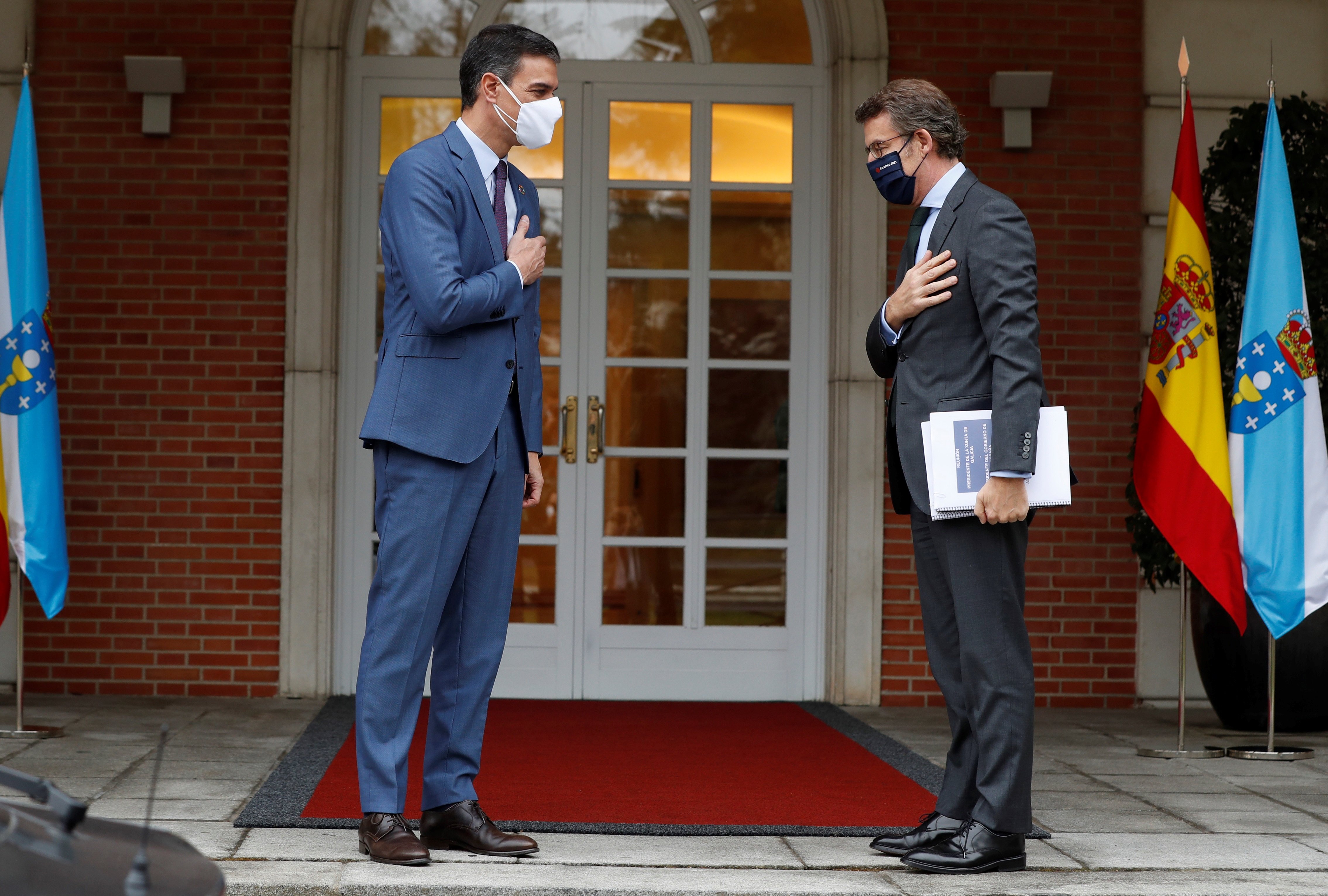Spain's People's Party (PP) - under the new management of Alberto Núñez Feijóo - continues to regain lost ground. That has been reflected in polls over recent weeks and is confirmed today by the barometer published by Spanish public polling agency, the CIS. In fact, the gap separating Spain's largest right-wing party from the governing Socialists (PSOE) of Pedro Sánchez would be only three percent if an election were held now, and in addition, the sum of the PP and far- right Vox would exceed that of the governing partners, the PSOE and the alternative left of Unidas Podemos. In fact, the current coalition has lost more than two percent of its vote in a month. The poll was conducted to coincide with the PP congress in Seville. It is symptomatic that, in voter assessment, the Galician leader gets a pass mark and the Spanish president a fail. Meanwhile, Ciudadanos (Cs) would drop below 3% of the vote across Spain - the exact threshold that this party wanted to impose to prevent the entry of Catalan pro-independence parties into the Congress of Deputies.
According to the barometer released this Wednesday, if a Spanish general election was held today, the PSOE would continue to be the leading force, but no longer so clearly. It would obtain 30.3% of votes, 1.2% less than the previous poll a month ago. It would be followed by the PP of Alberto Núñez Feijóo, with 27.2%, which would rise by 3.4% in a month and almost six points in two months. In fact, in this period the distance between the two has been cut from almost eight points to three.
Feijóo would gain ground mainly from votes attracted from far-right Vox, which would continue to be the third force with 14.4%, but losing almost two percent. He would also grow at the expense of Cs, which would fall by 1.2%, to the marginal figure of 2% of votes - which could see it fail to enter the institutions. On the left, Unidas Podemos would continue as the fourth-largest party, but also losing 1.1%, winning 10.7% of Spanish votes.
Looking at the left and right blocs, there is, then, a change: for the first time, the sum of the right and far right would exceed that of the Spanish government. Specifically, the PP and Vox would get 41.6% of the vote, while the PSOE and Unidas Podemos would be behind, totalling 41.0%.
In Catalonia, the correlation of forces among the pro-independence parties does not change. According to toay's poll, the ERC would get 2.4% of the vote in Spain as a whole, down three-tenths from the last barometer, in which it went up. Meanwhile, Junts would drop by one-tenth (1.2%) and the CUP by two-tenths (0.9%). In the Basque Country, the PNB would fall by 0.1%, to 1.2%, and EH Bildu would rise by two- tenths, to 1.2%.
Feijóo passes, Sánchez doesn't
When it comes to leaders' ratings, there are also some curious changes. The only two to pass the test are the two Galicians, Spain's second deputy PM, Yolanda Díaz (5.36 out of 10) and Alberto Núñez Feijóo (5.2). On the other hand, prime minister Sánchez is third, with a fail grade: 4.65. He is followed by Más País leader Íñigo Errejón (4.54), Inés Arrimadas of Cs (4) and, as usual, far-right leader Santiago Abascal (3.16). On the other hand, in terms of preferences for Spanish prime minister, Sánchez (22%) outperforms Feijóo (16.4%).
As for ratings given to ministers, there are four, all women, who get pass marks: the defence minister Margarita Robles, with 5.5 out of 10; Yolanda Diaz (5.6); the first deputy PM Nadia Calviño (5.49), and the health minister, Carolina Darias (5.0).

